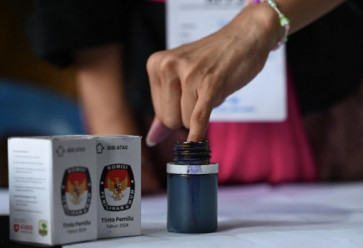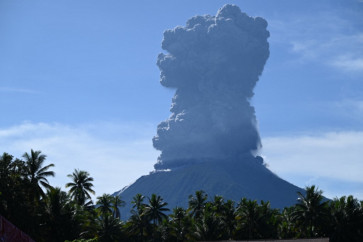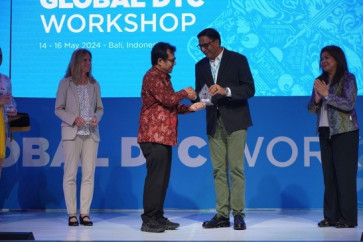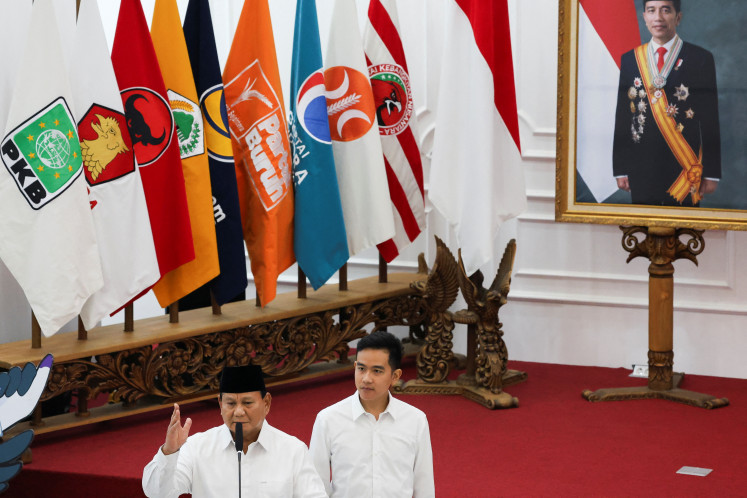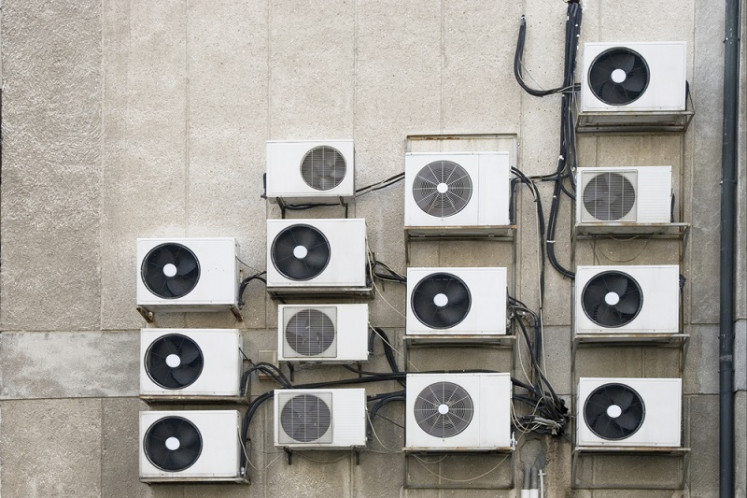China assures ASEAN on peace, stability in disputed SCS
Hand in hand: Singapore's Prime Minister Lee Hsien Loong (left), China's Premier Li Keqiang (center) and Thailand's Prime Minister Prayut Chan-o-cha pose for a photo at the ASEAN-China Summit on the sidelines of the 35th ASEAN Summit in Bangkok on Sunday
Change Size

H
and in hand: Singapore's Prime Minister Lee Hsien Loong (left), China's Premier Li Keqiang (center) and Thailand's Prime Minister Prayut Chan-o-cha pose for a photo at the ASEAN-China Summit on the sidelines of the 35th ASEAN Summit in Bangkok on Sunday. (Reuters/Soe Zeya Tun)
China has assured ASEAN member states that it is committed to sustaining peace and stability in the South China Sea as the two sides begin the second reading of the elusive code of conduct (COC) on the disputed waters, against the backdrop of prolonged tensions on the ground.
At the ASEAN-China Summit in Bangkok on Sunday, Chinese Premier Li Keqiang told ASEAN leaders his country wanted long-term peace.
“We are willing to work with ASEAN under the consensus that has been reached to sustain long-term peace and stability in the South China Sea, according to the timetable set for three years,” Li said in a statement as quoted by Reuters on Sunday.
ASEAN and Chinese officials met to discuss how to proceed with the second reading of the COC in Dalat, Vietnam, last month, following the completion of the first reading in Penang, Malaysia, in July. The negotiations were made possible after both sides agreed to a “single draft” negotiating text during an ASEAN ministerial meeting in Singapore last year.
The COC is mandated in the 2002 Declaration on the Conduct of Parties (DOC) in the South China Sea, which China has delayed for years. The talks continued amid growing concerns over China’s continued activities in the disputed waters, including the construction of military bases and deployment of military assets on man-made islands.
Malaysia, Taiwan, Brunei, Vietnam and the Philippines claim some or all of the South China Sea, one of the world’s busiest sea routes, while China clings on to sweeping claims that have since been invalidated by a 2016 international arbitration ruling.
Indonesia, meanwhile, is a non-claimant in the South China Sea dispute. Foreign Minister Retno LP Marsudi said in Bangkok that while ASEAN member states had different point of views on the disputed waters, all parties wanted a stable South China Sea.
However, tension simmered following a recent standoff between Chinese and Vietnamese vessels near an oil block within Vietnam’s exclusive economic zone (EEZ), an area over which a country holds special rights for the exploration and use of marine resources.
The Chinese oil survey vessel Haiyang Dizhi 8 finally left at the end of October after being in Vietnam’s EEZ for more than three months, according to data from Marine Traffic, a website that tracks vessels.
The Foreign Ministry’s director general of ASEAN affairs, Jose Tavares, previously said the second reading would focus more on content in the COC that can produce something “substantive, effective and actionable” and contribute to peace and stability in the region.
He said ASEAN welcomed the three-year target for the COC's completion, but the time limit should not compromise its substance, especially because efforts to complete it had been delayed for more than 10 years and this year, the progress had accelerated significantly.
“The second reading is more difficult by far. As we expect the negotiations to be tough going forward, we are aiming to find a compromise and [mutual] commitment,” he said.
The Chinese Foreign Affairs Ministry’s Southeast Asian affairs director, Sun Yi, recently said the COC would not only be beneficial for China and ASEAN but also for the whole region and the world.
Sun, who was once posted at the Chinese Mission to ASEAN in Jakarta, expressed his optimism while speaking with visiting representatives from Indonesian think-tanks and media outlets in Beijing last Thursday.
“The second reading is really important. It’s quite crucial because we are going into some substantive negotiations. Obviously, it would be more difficult, but we are still confident that we can [finish the second reading] in 2020 and that [COC negotiations] would be completed within the three-year [target],” he said.

